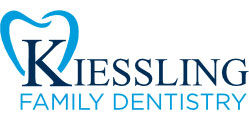Alleviate Dental Anxiety
Alleviating anxiety when visiting the dentist is a significant concern for many individuals. Dental anxiety can stem from various sources such as past traumatic experiences, fear of pain, or the sounds and smells associated with dental offices. Overcoming this anxiety is crucial for maintaining oral health. Here are strategies to help manage dental anxiety:
Communication:
Openly discuss your fears with your dentist. Dentists are trained to handle anxiety and can adjust their approach accordingly. Expressing concerns allows the dentist to tailor the treatment plan, ensuring a more comfortable experience.
 Understanding the Procedure:
Understanding the Procedure:
Fear often stems from the unknown. Ask your dentist to explain the procedure beforehand. Knowing what to expect can significantly reduce anxiety.
Distraction Techniques:
Bringing along music, podcasts, or audiobooks to listen to during the procedure can help divert your attention. Some dental offices also have televisions or offer VR headsets for distraction.
Relaxation Techniques:
Deep breathing exercises or guided imagery can be effective in managing anxiety. Practice these techniques before and during the dental appointment to help stay calm.
Sedation Options:
For those with severe anxiety, discussing sedation options with the dentist can be beneficial. Nitrous oxide (laughing gas) or oral sedatives can significantly reduce anxiety levels during dental procedures.
Regular Visits:
Avoiding the dentist due to anxiety only exacerbates the problem. Regular check-ups can prevent major dental issues and help build a comfortable relationship with your dentist.
Choose the Right Dentist:
Finding a dentist who is patient, understanding, and experienced in dealing with anxious patients is crucial. Look for reviews or get recommendations from friends and family.
Cognitive Behavioral Therapy (CBT):
For long-term management of dental anxiety, CBT can be highly effective. It involves working with a therapist to gradually reduce fear and change negative thought patterns associated with dental visits.
Acclimatization Visits:
Some dentists offer acclimatization visits where you can visit the clinic, meet the staff, and sit in the dental chair without undergoing any procedure. This can help you become more comfortable with the dental environment.
Mindfulness and Meditation:
Practicing mindfulness and meditation can help manage anxiety not just in the dental chair, but in other areas of life as well.
In conclusion, dental anxiety is a common issue that can be addressed through various techniques. Communication with your dentist, understanding the procedures, using distraction and relaxation techniques, exploring sedation options, and seeking professional help through therapy are all effective ways to manage dental anxiety. Regular dental visits are key to maintaining oral health and should not be avoided due to fear. At Kiessling Family Dental, we strive to make your dentist appointment experience as pleasant and stress-free as possible.


